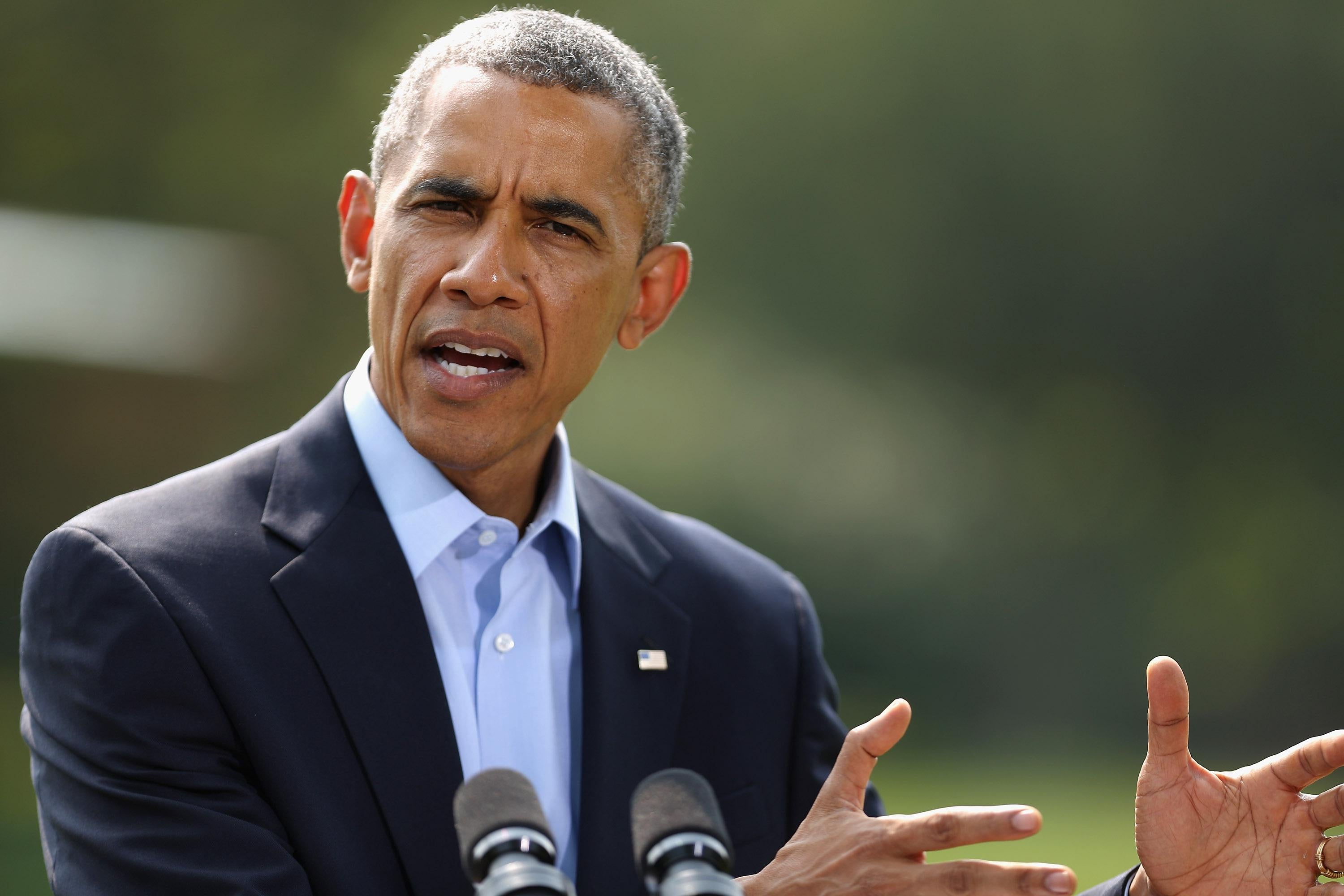The airstrikes to try to but the brakes on ISIS may be targeted, but the whole operation likely won’t be short-lived, President Obama acknowledged Saturday at the White House, where he talked to reporters before heading off to Martha’s Vineyard. President Obama repeatedly refused to give a timetable for the operations launched this week, only noting that the issue would not be solved in weeks and that “this is going to be a long-term project.”
The airstrikes carried out against the group that calls itself the Islamic State were essential to slow its dangerous operations, Obama said, emphasizing that they destroyed weapons and equipment. The main goal of the United States is “to not only make sure Americans are protected but to deal with this humanitarian situation,” he added.
Earlier, in his weekly address, Obama said that while the United States “cannot and should not intervene every time there’s a crisis in the world” the country “can’t just look away” when “countless innocent people are facing a massacre, and when we have the ability to help prevent it.” So far, US forces have conducted “two successful airdrops” of humanitarian assistance to members of the Yazidi minority who have been trapped on a mountaintop by the Islamist militants, Obama said. The president was careful to emphasize that “I will not allow the United States to be dragged into fighting another war in Iraq.” At his news conference Saturday, Obama noted that “we continue to call on Iraqis to come together and form an inclusive government,” adding that “this is something that the United States cannot do for them.”
Although the airstrikes on Friday were limited, they did help “temper days of building panic across the north of the country,” notes the Washington Post. Meanwhile, an American military team is in Irbil, the Kurdish regional capital, to help ensure tactical coordination between different forces, reports the Associated Press.
